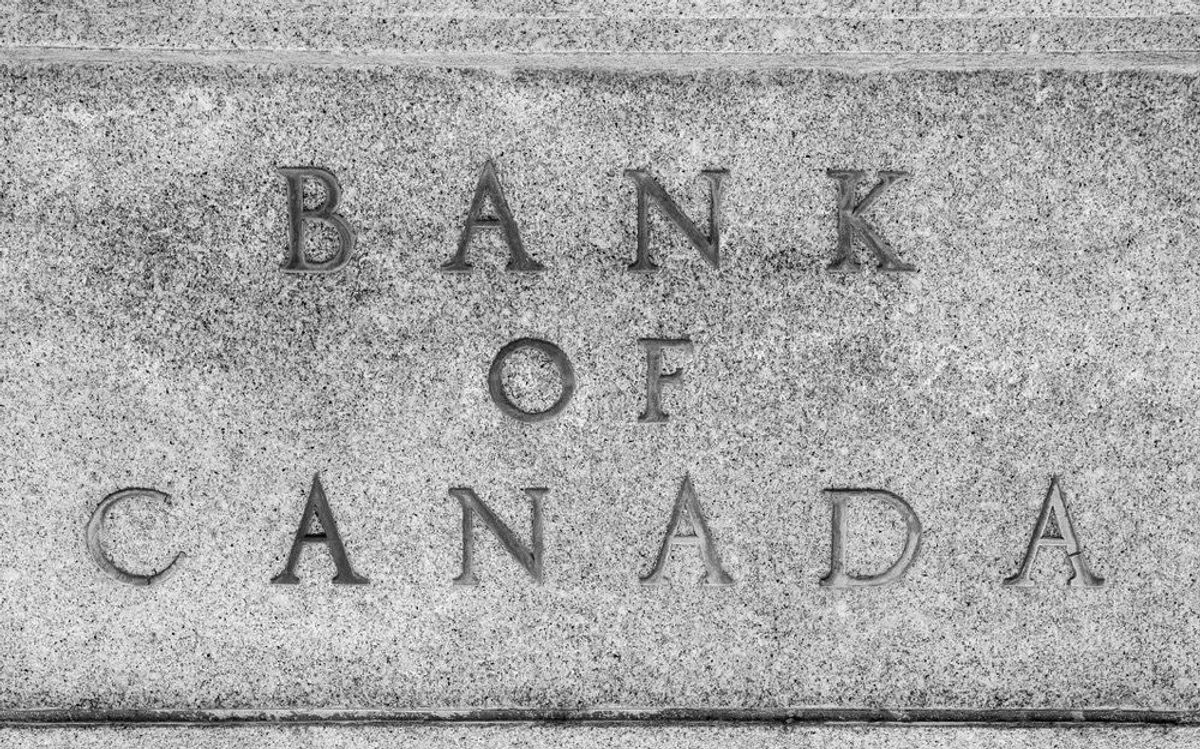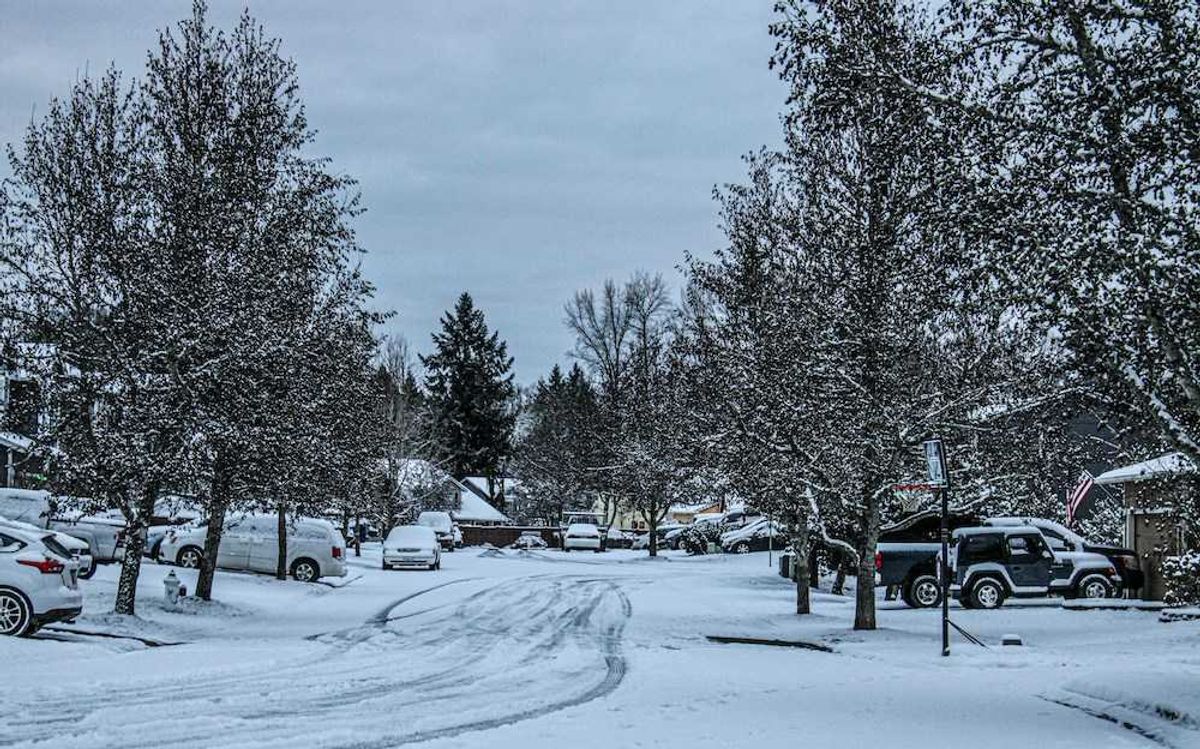Counterintuitive though it may seem, the Omicron variant of COVID-19, of which little is presently known, could actually ensure real estate activity remains red-hot going into 2022.
“What that uncertainly will do to real estate markets is, we believe, trigger similar behaviours to the previous three waves of this pandemic, and that has been shown to, strangely, paradoxically, drive real estate market activity,” Royal LePage President Phil Soper told STOREYS. “It’s challenging for policymakers, in particular the Bank of Canada, to aggressively tighten monetary policy and raise interest rates in the face of this kind of uncertainty, and they have been reluctant to. We believe Omicron will cause them to back off on plans to push interest rates up earlier in the face of inflation concerns, so money will stay cheaper for longer, we believe.”
The rock-bottom overnight interest rate has been the catalyst for frenzied activity in Canada’s real estate market because money that is cheap to borrow offsets exorbitant home prices. But the other major reason Omicron could perpetuate the market’s pace of activity is that it might dissuade people from travelling or, say, attending hockey games, and, as recent history has shown, money that isn’t spent on non-essential outlays sits in the bank.

“We know that in mid-2020, the savings rate in Canada, which is typically at 2-3% of income, peaked at over 28%,” Soper said. “People were saving an astonishing amount of cash and they were either sitting on it or moving it into real assets instead of going on vacation. We believe that, with concerns around another wave, another variant will cause people to delay travel plans, delay getting out and mixing in the community again, as sad as that is; they’re less likely to go to a big event or a concert, and that money will flow into their savings.”
Additionally, just as during the pandemic’s incipience, the more time people spend working from home, especially if their children aren’t attending school physically -- although school boards may not shut down this time -- the more they seem to yearn for spacious homes. Soper sees no reason that pandemic-long trend won’t continue.
“This reason has less directly to do with economics and more to do with an emotional desire to find appropriate shelter for one’s family,” he said. “We believe companies that may have had aggressive plans to return their employees to the office could delay those plans in the face of employment concerns. And with people working from home for longer, home takes on additional significance.“
Royal LePage just released its forecast for next year and anticipates the national aggregate home price will rise by 10.5% to $859,700 by the end of 2022. The median price of a detached home in Canada is also estimated to increase by 11% to $918,000, while the average price of a condominium nationwide is slated to grow by 8% to $594,000.
READ: What the Bank of Canada’s Unchanged Key Interest Rates Means for Mortgages
The report says Canada’s housing inventory shortage is the reason prices will rise, but Soper at least expects the rapid growth to decelerate through 2022, most likely because the country’s central bank will have to start hiking the interest rate sometime during the upcoming year.
In the Greater Toronto Area, the aggregate price of a home in Q4-2022 is forecasted to increase by 11% to $1,256,500 from the current quarter, the Royal LePage report says. The average single-family detached home is estimated to increase by 10% to $1,564,200 during that period, while the median condo price is predicted to rise by 12% to $763,800.
Although it may seem unexpected that condominiums would appreciate more than detached homes, the spread between the two has never been larger, and as a result, affordability concerns have made the former appear like relative bargains, Soper says.
“The gap between the price of a detached home and a condominium grew larger and larger to the point that we believe for someone, a family or a person who’s a first-time homebuyer looking to get into the market, there will be more interest that swings to condominiums,” he said. “In relative terms, condos really look like a bargain here but it’s not going to be everywhere. The place we see it happening most significantly is in the GTA.”
Demand for detached housing will be robust in 2022 because millennials are approaching their peak earning years and, while a hot market has five months’ supply, the GTA only has two, which means sellers will be salivating at the prospect of cashing in.
READ: Canada’s Real Estate Prices are Expected to Rise 9.2% in 2022: RE/MAX
“We don’t have a lot of three-bedroom condos at an affordable price,” Soper said. “If you want three bedrooms, you’re looking at luxury condos that are more expensive than detached housing. Families are looking to alternatives and that’s why some are moving to secondary cities, but they are buying detached that is available and in their price range, so we don’t see any slowdown in that sector.”
During the early months of the pandemic, Toronto’s condo investors offloaded their properties, however, they have long since returned in droves, and given that the city is on the cusp of a monumental demographical shift, why wouldn’t they?
“We have some 840,000 international students typically studying in Canada and they are coming back,” Soper said, adding that Toronto is one of their obvious choice destinations. “Even though immigration is slower to ramp up than anticipated, it is ramping up. It’s been slow because of a backlog in the system, which is slowly being cleared, but people are continuing their immigration to Canada.”
In Greater Vancouver, the most expensive real estate market in the country, the aggregate price of housing by the end of next year is forecasted to grow by 10.5% year-over-year to $1,375,700, with single-family detached homes and condos expected to increase by 12% and 8% to $1,892,800 and $766,800, respectively.

The region’s recent flooding calamity understandably created disruptions in the local economy that rippled into the real estate market, but while Soper surmises the interruptions will be short-lived, it will affect the delivery of new housing. He nonetheless expects a hot start to 2022.
“There are a lot of mega capital projects on the books, despite the fires and floods, and this is the most desirable geography in the country, so I believe we are going to see an unusually busy winter in the Lower Mainland,” he said. “Right now, it’s typically slowed down, but we believe things will continue being unusually busy for our people through January and that will lead into a strong spring market for 2022, but without the irrational exuberance of 2021, which was at the heart of the post-lockdown frenzy to find new living accommodations.”





















